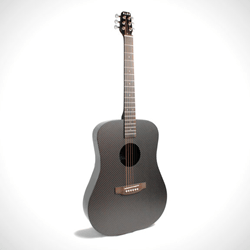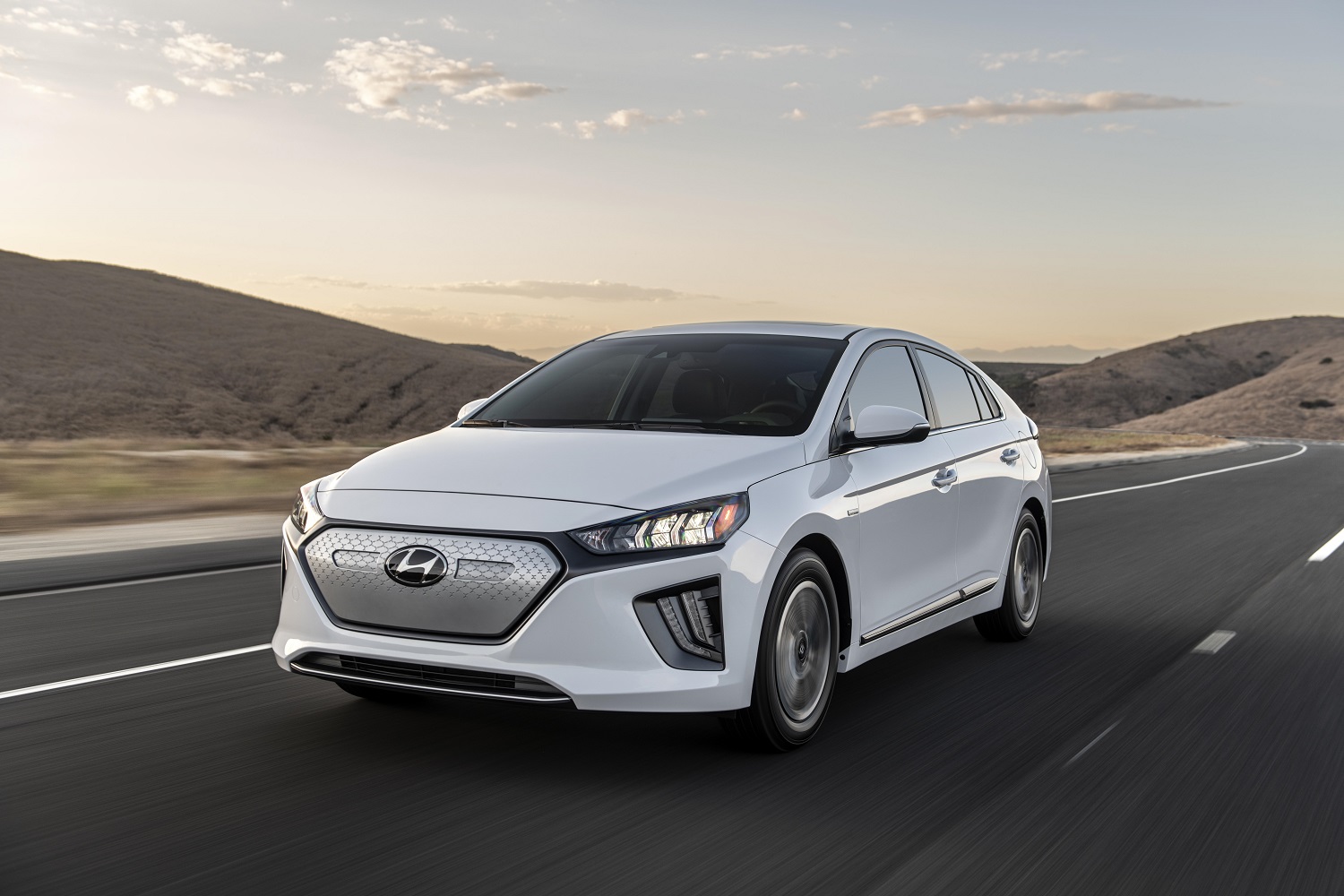Press Releases
Gibson Certified Vintage: Launches Next Round of Rare and Highly Collectible Finds

| Gibson–-the iconic American-made, and leading instrument brand–has a legacy of making world-class instruments since 1894 when Orville Gibson was crafting archtop mandolins. As a natural extension of Gibson’s passion for its unique instruments and the stories they tell, the history-making Gibson Certified Vintage program–offers collectible vintage guitars authenticated, and certified directly by Gibson, with a new limited lifetime warranty and a certificate of vintage authenticity. All Gibson Certified Vintage guitars are sold via the Gibson Garage in Nashville, TN, call (615) 933-6000; select models will be available for purchase via https://www.gibson.com/en-US/Certified-Vintage. Today the Gibson Certified Vintage program premieres the next collection of guitars, a 1986 Gibson US-1 Prototype, 1985 Gibson Spirit II XPL Prototype, 1985 Gibson Explorer XPL Prototype, 1984 Gibson Q200 Prototype, 1983 Gibson Q Series Prototype, 1984 Gibson Q300 Prototype, 1987 Gibson U-2, and a 1983 Gibson Challenger Prototype. A world-first, the Gibson Certified Vintage collection offers collectors an incredible opportunity to own extraordinary instruments, sourced and authenticated by Gibson. Gibson Certified Vintage guitars feature one-of-a-kind Golden Era blue-chip guitars, unique, one-of-a-kind prototypes, celebrity-owned guitars, as well as 70s and 80s models directly from the Gibson Vault. In an industry first, all Gibson Certified Vintage guitars are sold with a brand new limited lifetime warranty. All guitars arrive with a detailed letter of appraisal confirming the provenance and history of the instrument, a certificate of authenticity signed by Gibson’s Certified Vintage Manager, Mitch Conrad, and an array of unique extras. “Our legacy is rich with innovation, and this collection showcases a fascinating era of unique, experimental designs,” says Mitch Conrad, Gibson Certified Vintage Manager. “These prototypes represent the moment an idea for a new guitar becomes a playable instrument in the physical world. Early iterations often feature unique details that never make it to production, but highlight the ingenuity and problem-solving efforts of the product development team. It’s fascinating to see the in-between steps that lead to the instruments we know and love. One standout is the Q Series Prototype-the missing link between the Victory and Q Series guitars, with features from both instruments and an unreleased Gibson vibrato system. For the first time ever, fans have the chance to own these wildly cool 80s prototypes, direct from the Gibson Vault.” Explore the next guitars to debut in the Gibson Certified Vintage collection below and check back for refreshed vintage offerings as each guitar is sold; for all details, visit https://www.gibson.com/en-US/Certified-Vintage. |
 |
GIBSON CERTIFIED VINTAGE: 1986 GIBSON US-1 PROTOTYPESERIAL #80986900 |
 As the 1980s saw an evolution in guitar design toward sleeker aesthetics, faster playability, and versatile electronics, Gibson introduced the US-1 to appeal to modern rock and fusion players. This rare 1986 US-1 Prototype represents Gibson’s effort to combine high-performance features with the brand’s renowned craftsmanship. The poplar body with Chromyte (balsa) added, the maple top and back, the 25.5” scale length, and split-diamond inlays make it a unique entry in Gibson’s lineup, with a lightweight design that plays and sounds incredible. The back of the headstock bears a “Gibson Original Prototype” decal, confirming its pre-production status. The instrument has almost no checking, with light nicks and dings throughout. The middle pickup was weak and has been expertly rewound by Gibson’s Pickups Product Manager, Jared Brandon. It retains its original Grover® Mini Rotomatics® tuners, Tune-O-Matic™ bridge, and push-button coil tap for versatile tonal options. It ships in its original black Gibson Rectangle case. 1985 GIBSON SPIRIT II XPL PROTOTYPESERIAL # 80085510 As the 1980s saw an evolution in guitar design toward sleeker aesthetics, faster playability, and versatile electronics, Gibson introduced the US-1 to appeal to modern rock and fusion players. This rare 1986 US-1 Prototype represents Gibson’s effort to combine high-performance features with the brand’s renowned craftsmanship. The poplar body with Chromyte (balsa) added, the maple top and back, the 25.5” scale length, and split-diamond inlays make it a unique entry in Gibson’s lineup, with a lightweight design that plays and sounds incredible. The back of the headstock bears a “Gibson Original Prototype” decal, confirming its pre-production status. The instrument has almost no checking, with light nicks and dings throughout. The middle pickup was weak and has been expertly rewound by Gibson’s Pickups Product Manager, Jared Brandon. It retains its original Grover® Mini Rotomatics® tuners, Tune-O-Matic™ bridge, and push-button coil tap for versatile tonal options. It ships in its original black Gibson Rectangle case. 1985 GIBSON SPIRIT II XPL PROTOTYPESERIAL # 80085510 |
 |
| This rare 1985 Gibson Spirit II XPL Prototype comes directly from the Gibson Vault, offering a glimpse into Gibson’s design experimentation during the 1980s. As the era demanded faster playability, sleeker designs, and high-performance electronics, instrument makers adapted their models to reflect these changes. The Spirit II XPL was part of this shift, featuring a mahogany body, glued-in mahogany neck, and a pair of Patent Applied For-style humbuckers™, delivering classic Gibson warmth with added clarity. The back of the headstock bears a “Gibson Original Prototype” decal, confirming its pre-production status. The instrument has light-checking on the front along with some nicks and dings, heavy uniform checking on the back and neck, and finish wear around the A, D, and B tuners. The Gibson logo is partially rubbed off, and there is fret sprout leading to cracked binding at the fret ends, though it remains stable. It retains its original Schaller Wraparound 455 bridge, Grover® Mini Rotomatics® tuners, and gold Speed knobs, all of which contribute to its distinct look and tonal character. Ships in a Gibson Premium Softshell case (black leather). 1985 GIBSON EXPLORER XPL PROTOTYPESERIAL # 80025537 |
 |
| As the 1980s brought faster playing styles, heavier distortion, and bold aesthetics to the forefront of rock and metal, instrument manufacturers responded with designs that embraced these shifts. The Gibson Explorer XPL was a product of this era, updating the iconic Explorer™ body shape to match the attitude of the 80s music scene, with high-output pickups and modern hardware upgrades for enhanced playability and sustain. This 1985 Explorer XPL Prototype is a mid-80s tone machine with a sculpted three-piece mahogany body, maple top, and Cherry Sunburst finish. The back of the headstock bears a “Gibson Original Prototype” decal, confirming its pre-production status. The instrument has even checking throughout, and while the frets are lower than standard, it still plays well. It retains its original Dirty Fingers™ pickups, Grover® Mini Rotomatics® tuners, and a Tune-O-Matic™ bridge with a Stop Bar tailpiece, all of which contribute to its powerful tone and aggressive look. It ships in its original black Gibson Rectangle case. 1984 GIBSON Q200 PROTOTYPESERIAL # 83554563 |
 |
| As the musical landscape shifted from the blues-based rock of the 1970s to the energetic sounds of new wave and heavy metal in the 1980s, instrument design evolved across the industry to meet the demands of faster playing styles, high-octane riffs, and modern aesthetics. This shift resulted in sleeker body designs, deep cutaways for improved upper-fret access, and hardware aimed at speed-focused performance. The Gibson Q Series emerged from this era, incorporating streamlined contours, advanced electronics, and performance-driven hardware. This 1984 Q200 Prototype is an early example of Gibson’s commitment to innovation during the 1980s, combining sleek styling with high-performance features. As part of the Q Series, the Q200 features a sculpted mahogany body, a 24.75” scale length, and a dual pickup configuration designed for tonal versatility. This prototype includes a rounded-style headstock, differing from the sharper “scimitar” design found on production examples. The back of the headstock bears a “Gibson Original Prototype” decal, affirming its pre-production status. The instrument has very light checking and slight yellowing of the finish but remains in excellent condition. It retains its original Kahler® Flyer bridge, Gibson-branded Schaller six-in-line tuners, a P-90 neck pickup, and a Dirty Fingers™ humbucker™ in the bridge position, all of which contribute to its distinct look and tonal character. It ships in its original black Gibson rectangle case. 1983 GIBSON Q SERIES PROTOTYPESERIAL # 3633564-020 |
 |
| This incredibly unique instrument represents Gibson’s transition from the early 80s Victory Series to the Q Series models of the mid-1980s. It blends a Victory-style body with a Q Series neck and headstock, marking an important evolutionary step in Gibson’s development of performance-driven instruments. It features a unique HSS pickup configuration, a prototype Gibson roller bridge and tremolo system, and a rough-cut pickguard, indicating its early stage of development. The back of the headstock bears a “Gibson Original Prototype” decal, further confirming its pre-production status. The instrument has light nicks and dings throughout the body and headstock but is an overall clean guitar. It retains its original Gibson prototype roller bridge and tremolo, Gibson-branded Schaller six-in-line tuners, and Dirty Fingers™ humbucker™ in the bridge position, all of which contribute to its distinct look and tonal character. It ships in its original black Gibson rectangle case. 1984 GIBSON Q300 PROTOTYPESERIAL # 83554565 |
 |
| As the musical landscape shifted from the blues-based rock of the 1970s to the energetic sounds of new wave and heavy metal in the 1980s, instrument design evolved across the industry to meet the demands of faster playing styles, high-octane riffs, and modern aesthetics. This shift resulted in sleeker body designs, deep cutaways for improved upper-fret access, and hardware aimed at speed-focused performance. The Gibson Q Series emerged from this era, incorporating streamlined contours, advanced electronics, and performance-driven hardware. This 1984 Q300 Prototype is a prime example of Gibson’s design experimentation, featuring a mahogany body, a 24.75” scale length, and a triple-P-90 pickup configuration for maximum clarity, output, and midrange punch. The back of the headstock bears a “Gibson Original Prototype” decal, confirming its pre-production status, and in true prototype fashion, the original tremolo cavity was slightly larger than needed and was filled slightly to give the tremolo screws more surface area to bite into. 1987 GIBSON U-2SERIAL # 80847569 |
 |
By the late 1980s, the demand for fast-playing, high-performance guitars was at its peak, with players seeking instruments that offered sleek designs, versatile electronics, and modern hardware. The Gibson U-2 was part of this evolution, built to appeal to guitarists favoring technical playing styles and Floyd Rose®-equipped guitars. This 1987 Gibson U-2 is an early, rare iteration that features more similarities with the US-1, including the raised Flying V™-style logo and the sharper scimitar headstock. The instrument has light nicks, dings, and finish checking throughout. The neck pickup was expertly rewound by Gibson’s Pickups Product Manager, Jared Brandon. It retains its original licensed Floyd Rose tremolo system, Grover® Rotomatics® tuners, and black Speed knobs, all of which contribute to its high-performance design. It ships in its original black Gibson rectangle case. 1983 GIBSON CHALLENGER PROTOTYPESERIAL # 83043617 |
This rare 1983 Challenger prototype represents Gibson’s early 80s effort to produce affordable, player-friendly instruments while maintaining the brand’s commitment to craftsmanship. The Challenger featured a solid maple body modeled after the iconic Les Paul™, a bolt-on maple neck, and a no-frills, performance-driven layout. Unlike production models, this prototype lacks a silkscreened Gibson logo on the headstock and features an impressed “PROTO” stamp on the back, indicating its pre-production status. While the Challenger eventually made it to full production in multiple configurations, this early prototype is of the single-pickup variety. The guitar is in very good condition overall, with light nicks, dings, and finish checking throughout. It retains its original Schaller Wraparound bridge, Gibson Deluxe tuners, and Challenger bridge pickup, all of which contribute to its distinct look and tonal character. It ships in its original Gibson first-generation Protector case. |
| *** Gibson: GIBSON.COM | X | IG | FB | GIBSON APP | GIBSON GARAGE NASHVILLE | GIBSON GARAGE LONDON | GIBSON RECORDS | GIBSON GIVES |GIBSON TV Epiphone: EPIPHONE.COM | TWITTER | INSTAGRAM | FACEBOOK | YOUTUBE Kramer:KRAMERGUITARS.COM | TWITTER | INSTAGRAM | FACEBOOK | YOUTUBE MESA/Boogie: MESA/BOOGIE.COM | TWITTER | INSTAGRAM | FACEBOOK KRK: KRKMUSIC.COM | TWITTER | INSTAGRAM | FACEBOOK | YOUTUBE Maestro: MAESTROELECTRONICS.COM | @MAESTROELECTRONICS About Gibson: Gibson, the leading iconic guitar brand, has shaped the sounds of generations of musicians and music lovers across genres for 130 years. Founded in 1894 and headquartered in Nashville, Gibson has a legacy of world-class craftsmanship, legendary music partnerships, and progressive product evolution that is unrivaled among musical instrument companies. The Gibson portfolio includes Gibson, the leading guitar brand, as well as many of the most beloved and recognizable music brands, including Epiphone, which has been on every stage since 1873, Kramer, the original MADE TO ROCK HARD guitar brand, MESA/Boogie, the home of tone, KRK, behind great music for over 30 years, and Maestro, the founder of effect pedals. Gibson is dedicated to quality, innovation, and sound excellence so that music lovers for generations to come will continue to experience music shaped by all Gibson brands. Explore more at Gibson.com, Gibson App, and on Gibson TV, follow us on Instagram, Twitter and Facebook, and visit us at the Gibson Garage Nashville and the Gibson Garage London. |





